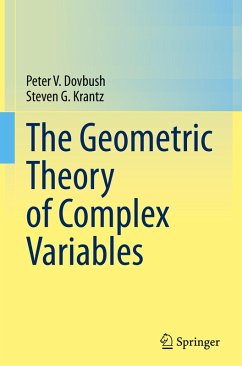This book provides the reader with a broad introduction to the geometric methodology in complex analysis. It covers both single and several complex variables, creating a dialogue between the two viewpoints.
Regarded as one of the 'grand old ladies' of modern mathematics, complex analysis traces its roots back 500 years. The subject began to flourish with Carl Friedrich Gauss's thesis around 1800. The geometric aspects of the theory can be traced back to the Riemann mapping theorem around 1850, with a significant milestone achieved in 1938 with Lars Ahlfors's geometrization of complex analysis. These ideas inspired many other mathematicians to adopt this perspective, leading to the proliferation of geometric theory of complex variables in various directions, including Riemann surfaces, Teichmüller theory, complex manifolds, extremal problems, and many others.
This book explores all these areas, with classical geometric function theory as its main focus. Its accessible and gentle approach makes it suitable for advanced undergraduate and graduate students seeking to understand the connections among topics usually scattered across numerous textbooks, as well as experienced mathematicians with an interest in this rich field.
Regarded as one of the 'grand old ladies' of modern mathematics, complex analysis traces its roots back 500 years. The subject began to flourish with Carl Friedrich Gauss's thesis around 1800. The geometric aspects of the theory can be traced back to the Riemann mapping theorem around 1850, with a significant milestone achieved in 1938 with Lars Ahlfors's geometrization of complex analysis. These ideas inspired many other mathematicians to adopt this perspective, leading to the proliferation of geometric theory of complex variables in various directions, including Riemann surfaces, Teichmüller theory, complex manifolds, extremal problems, and many others.
This book explores all these areas, with classical geometric function theory as its main focus. Its accessible and gentle approach makes it suitable for advanced undergraduate and graduate students seeking to understand the connections among topics usually scattered across numerous textbooks, as well as experienced mathematicians with an interest in this rich field.









